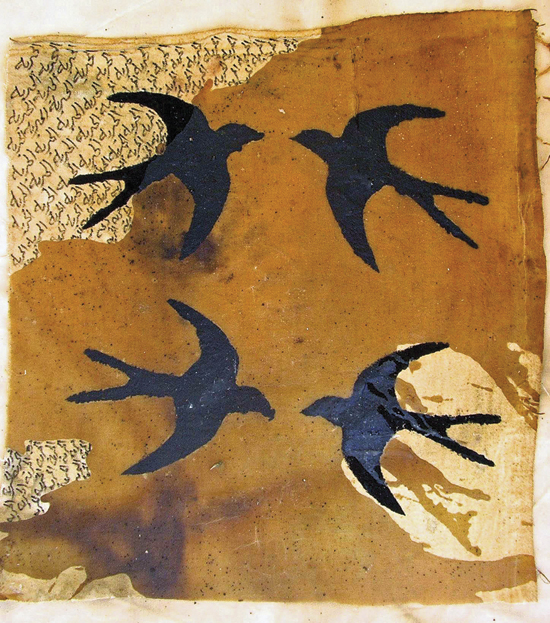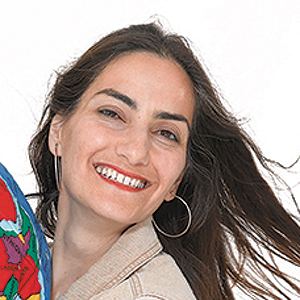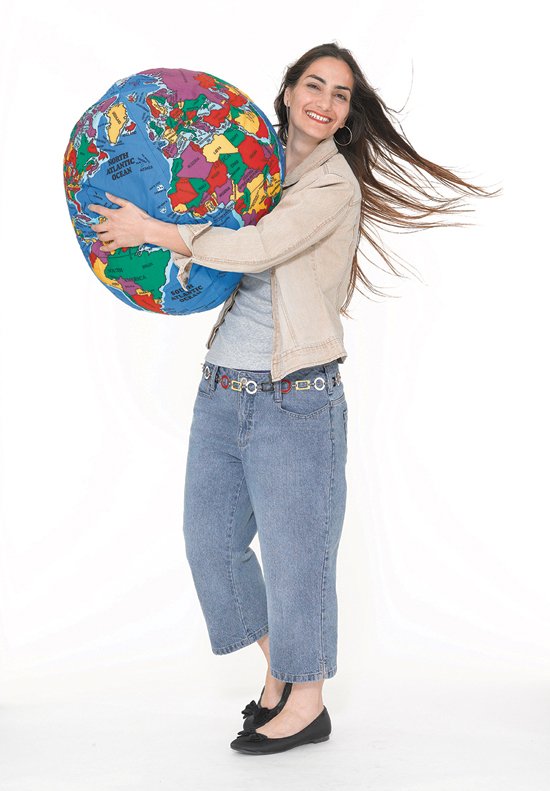Ibtisam Barakat is an author and poet who has written books in both English and Arabic. She is also a translator, public speaker, artist, educator, and social justice advocate who focuses especially on empowering children and teens. Ibtisam’s first memoir in English, Tasting the Sky: A Palestinian Childhood (Farrar, Straus and Giroux: hardcover, 2007; paperback, 2016), tells her family’s story during and following the Six-Day War. Having won more than 20 awards and honors, it is now available in several languages and taught in many schools and universities around the world. Al Ta’ Al Marbouta Tateer – The Letter Ta’ Escapes – (Tamer Institute, Ramallah, 2011) won the Anna Lindh Prize for Best Children’s Book in Arabic. Her most recent work is the memoir Balcony on the Moon: Coming of Age in Palestine (Farrar, Straus and Giroux/Macmillan, 2016), in which she writes about her teenage years in the 1970s and early 1980s in Ramallah. Balcony on the Moon has received a number of top-book ratings. Ibtisam Barakat is the founder of Write Your Life seminars. For more information, please visit the author’s page: www.ibtisambarakat.com.
“My writing is a clear and spacious window,” Barakat states in a feature on the Institute for Middle East Understanding’s website. “I know whether it’s morning or night, whether it’s a rainy day or a summer day, and whether it’s a season of freedom outside and inside or a season of fear, all through what I see reflected in my writing.” Barakat’s free-verse, short-lined poems often use metaphor as a point of entrance in their explorations of themes such as healing, peacemaking, and children’s experiences of war.*
A Poem Made of Water
The biology teacher said that people,
all people,
are made mostly of water.
And I understood that all of us,
like water,
have been through so much:
Fell from the sky,
spent nights in the middle
of a dark ocean,
cleaned dirt out of clothes,
and dishes of all kinds.
Like water,
had to freeze in winters
and simmer under covers
and be put in cubes that are
hit countless times
on kitchen counters.
And I understood why
when someone’s tears fall
I feel.
From the ongoing Poetry Diary of a Palestinian Woman.
A Song for Alef
Alef the letter
is a refugee.
From paper
to paper
he knows
no home.
Alef the letter
he is the shape
of a key
to the postal box
of memory.
Alef the letter
sits in the front
of the bus
of alphabets
to see.
He sees war,
he looks above it.
He sees war,
he looks below it,
and beyond it
to see peace.
Alef knows
that a thread
of a story
stitches together
a wound.
Alef the letter
he is the shape of hope.
Like me,
a refugee.
For me,
my refuge.
From Tasting the Sky, A Palestinian Childhood © 2007 by Ibtisam Barakat.
Reprinted by permission of Farrar, Straus and Giroux. All rights reserved.

Singing in Key
I sing in the key of
our house that I miss.
When I sing in that key
I return, and see it again.
I sing in the key of sol,
my soul and yours.
In the key of la,
la meaning no in Arabic.
“You do not know me.
You do not yes me either.”
So, I sing.
“You cannot have my home
without becoming me.”
Mi, fa, sol, la, ti.
Tea in the garden
when the guards are gone
and I run across memories
to smell a flower that
blooms inside a story
my grandmother
once gave to me.
I sit with the story
quiet like a stone.
Stones are the keepers
of history until my people’s
hardship reaches a
safer shore and they all
come home singing in
the key of a new history.
From the ongoing Poetry Diary of a Palestinian Woman.
Curfew
Our city is a cell.
Children’s faces
are replacing
flower pots on
window sills.
And we are waiting.
From our window bars
of boredom
we enter a spit race:
The one whose spit
reaches farther
is freer.
We look to the sky and
squint our questions.
We turn the sun
into a kite,
and hold it
with a ray of light
till it is torn up
inside the horizon,
and the day reaches its end
like a story that we live
but we do not understand.
Our questions remain
a yeast
inside our chests,
rising.
From the ongoing Poetry Diary of a Palestinian Woman.
My People’s Story
We once lived rooted
Like the ancient olive trees.
Now we’re birds
Nesting on songs
About homes we miss.
Storms and distances
Decide our address.
From Balcony on the Moon, Coming of Age in
Palestine © 2016 by Ibtisam Barakat.
Reprinted by permission of Farrar, Straus and Giroux. All rights reserved.
Palestine
At the checkout register,
at an office-supplies store,
I am getting ready to buy
the globe.
Fifty dollars the man says,
one hundred and ninety-five countries,
all for fifty dollars!
I am thinking:
That means twenty-five cents a country!
Can I give you all the money I have,
and you throw in Palestine?
Where do you want it?
he asks.
Wherever there are
Palestinians.
From the ongoing Poetry Diary of a Palestinian Woman.
Stirrings
I thank the women
who came before me,
who, as they stirred
sugar into tea,
and lemon into
lentil soup,
had stirrings of freedom
in their chests.
Some spoke of that,
and some served the food
silently.
But all the longing
conquered the long road
fed the ground,
until it grew strong
for me now to
stand on it.
Stand my ground,
walk, and run
my ground
as the master
of my spirit.
From the ongoing Poetry Diary of a Palestinian Woman.
All poems cited above © by Ibtisam Barakat.
* Ibtisam Barakat, Poetryfoundation, available at https://www.poetryfoundation.org/poems-and-poets/poets/detail/ibtisam-barakat.



